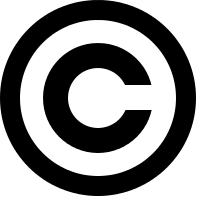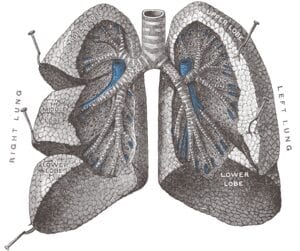
- Image via Wikipedia
As you know, William Patry, who’s devoted most of his professional life to copyright issues, is coming out with a book, Moral Panics and the Copyright Wars. I’ll have a full review of the book in early September (though, the short version is “it’s great”), but if you want a signed copy of the book (along with signed copies of four other books related to these issues) order soon, since the Techdirt Book Club is almost sold out.
In the meantime, I got a chance to ask Patry some questions about why he wrote the book, and his views on the state of copyright these days. Patry is a world-renowned expert on copyright law, and has written what’s recognized as a definitive text on copyright law, Patry on Copyright (read a shot review of that work). Here’s our interview. Enjoy:
What drove you to write Moral Panics & The Copyright Wars?
I wrote the book out of frustration; frustration over the way the language of demonization has been successfully used to frame copyright debates in order to achieve results that are anti-consumer and anti-innovation. The importance of framing is well known in political circles. John Kerry was brilliantly framed by Karl Rove in 2004. Barack Obama brilliantly avoided similar efforts in 2008.
Innovative companies have similarly been subjected to the Karl Rove treatment by content owners. We can laugh at some of the metaphoric language used by copyright owners, and think, rightly, that it reveals how out of touch some of them are with the way technology has changed consumer demand. But laughing at such language ignores that such characterizations are coldly strategic; they are not uttered off-the-cuff in the heat of an emotional moment. The strategy is to retain existing business models in the face of disruptive, new business models that respond better to consumer demand. Rather than engage in self-evaluation, rather than examine whether they should change in the face of changed circumstances, too often copyright owners attack change itself, by conjuring up what sociologists call moral panics, hence the title of the book.
You’ve spent many years in “the copyright business” in a variety of different roles in both the public and private sector. You’ve discussed in the past why you’re a supporter of copyright — and yet, you are greatly concerned with what copyright has become. Can you explain when you first started to become concerned about the way copyright was being used/portrayed — and what brought you to that realization? Was there a moment when it occurred, or was it a gradual thing? Or do you feel that your position has remained unchanged?
Related articles by Zemanta
- Canadian Copyright Organization: This Is War Against Consumers (techdirt.com)
- Protecting Yourself From Consumers Is Not A Recipe For Success (techdirt.com)
- Inside Word: There’s No Economic Value In A Copyright (paidcontent.org)
- Patry: It’s Not Copyright That Creates Value, It’s Consumers’ Willingness To Buy (techdirt.com)
![Reblog this post [with Zemanta]](http://img.zemanta.com/reblog_b.png?x-id=42fcd4e2-98f4-4c6d-bc6f-1ca1317490f0)








